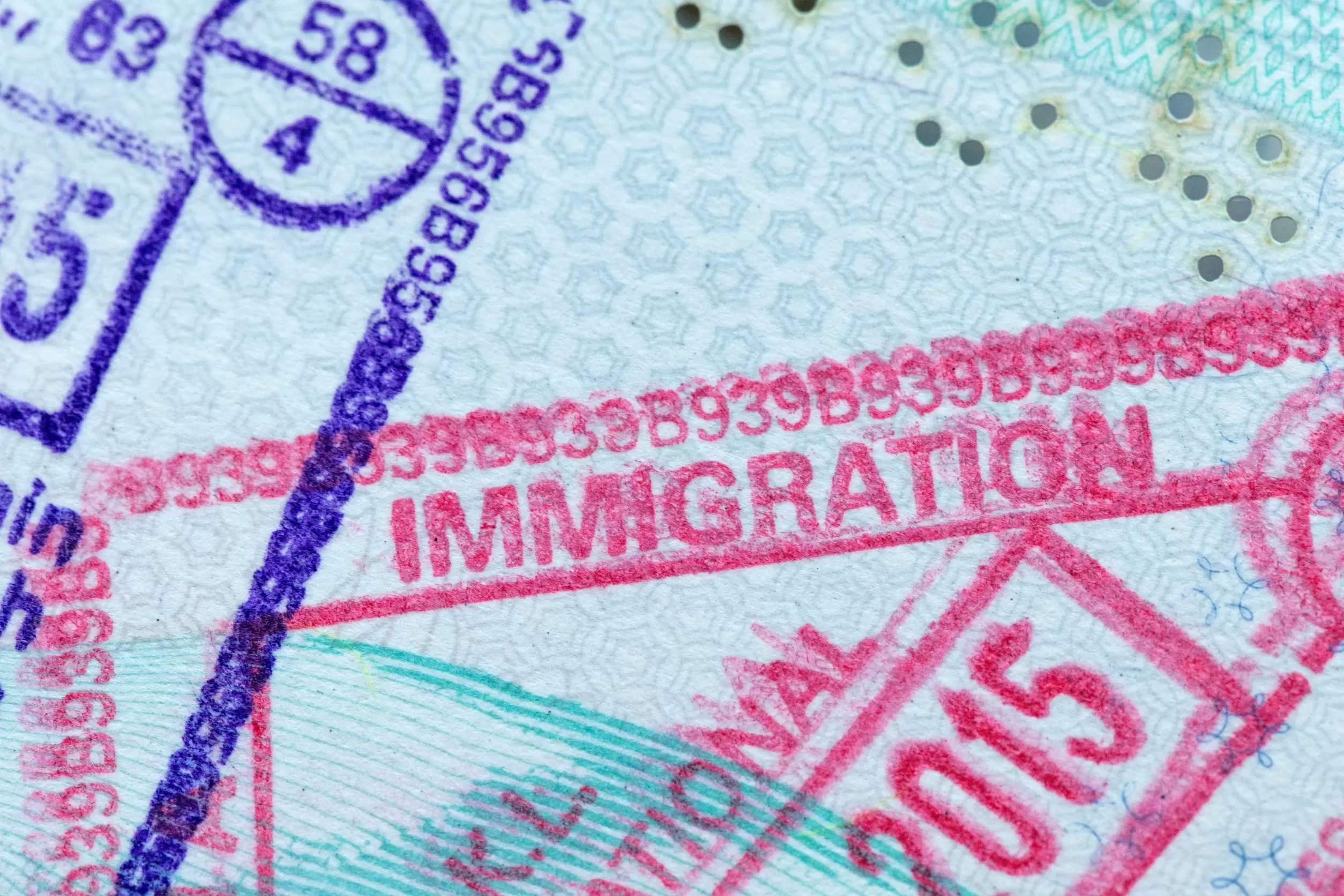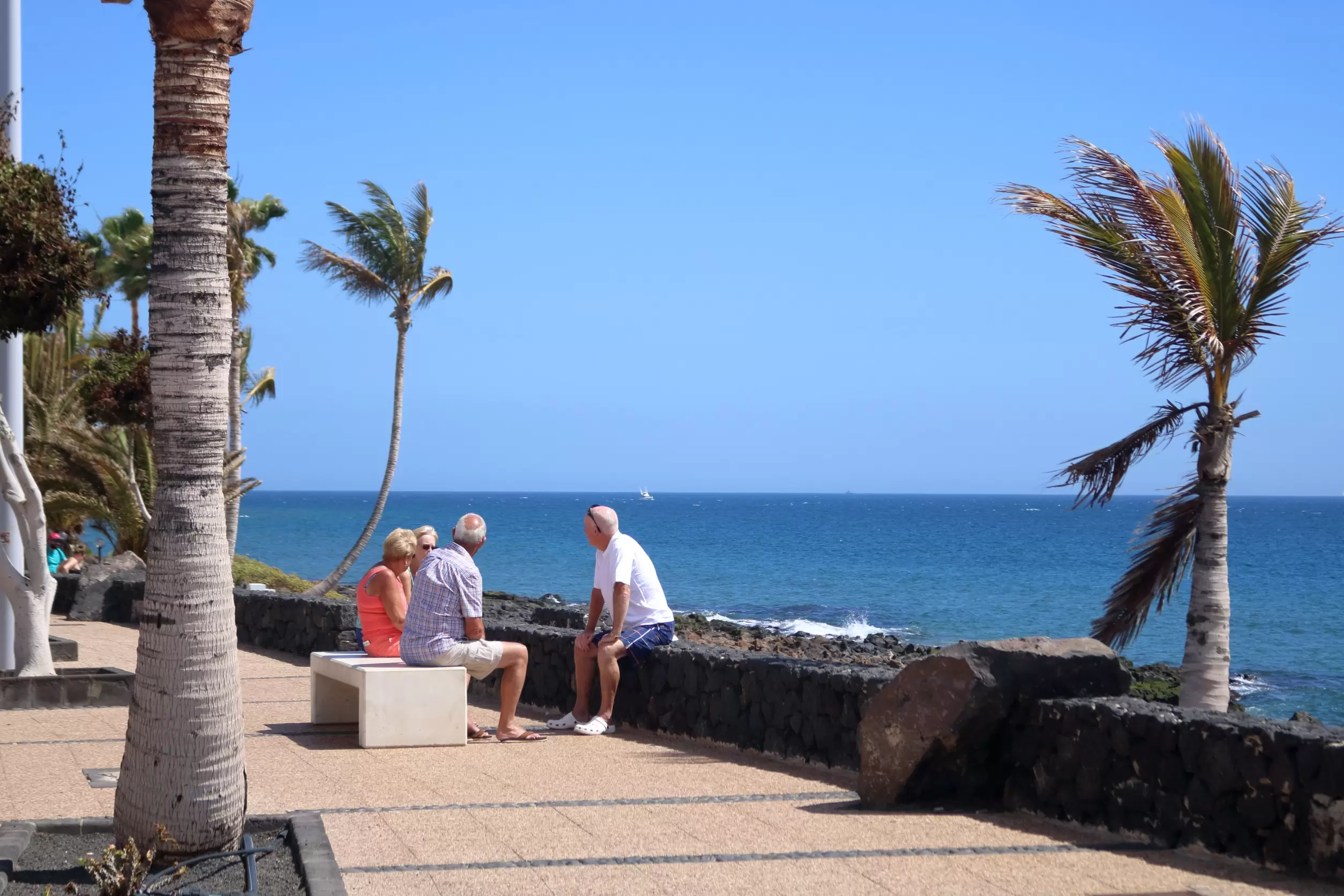

1. The Spain Retiree Visa
Over the last few decades, more and more pensioners from the UK and other northern-European countries have considered retiring abroad, with many making the decision to retire to Spain. Their motives are clear: why spend all year in a cold and damp climate when there is a sunnier, warmer alternative just a couple of hours flight away?
Many British retirees are drawn to popular coastal regions such as the Costa Blanca and Costa del Sol on the mainland, as well as the beautiful Balearic Islands and Canary Islands. These areas offer a perfect blend of sunny weather, stunning beaches, and established expat communities.
Of course, retirement in Spain has always been a big transition for anybody and was never without its challenges: finding a place to live, dealing with local bureaucracy, tying up loose ends at home...and of course Brexit has come along to make things more complex still, leading many British citizens to question, can I live in Spain after Brexit?
That all said, Brexit is no barrier to the vast majority of people from the UK who still have the dream of retiring to Spain and living in one of the sunniest countries in Europe. In this article, you will learn how it is still possible for British retirees to move to and live in Spain.
Parts of the information we provide below will also be useful for citizens of other European countries - of course, for EU citizens who wish to retire in Spain, there is no requirement to obtain a 'retirement visa', however the other requirements are applicable.
Want to hear what other clients
are saying about us?

2. Retirement visas in Spain for British and Non-EU Citizens
First things first, we should make it clear that there is no such thing as a 'retirement visa' in Spain. There are, however, a number of different visas that may be applied for and which permit non-EU citizens to live in Spain.
It's important to note that while the United Kingdom is no longer part of the European Union, Spain remains a member state. This means that British citizens now face different requirements for residency compared to EU citizens.
Note that it is only necessary to obtain a residence visa if you are planning to stay in Spain for periods of time longer than the 90-day's permitted in any 180-day period. This may be sufficient for some, and in this case, no residency permit is required since residents of most countries may travel visa free to Spain for holidays and short stays.
For non-EU citizens who do wish to stay for longer periods of time than 90 days, the three most plausible methods of obtaining a residence permit to stay in Spain legally as long as you wish are: the family reunification visa; the non-lucrative visa; and the Spain golden visa
3. Spanish Non-lucrative Visa
A common question in recent years has been: can Brits retire to Spain following Brexit? The answer is a resounding ‘Yes!’ - with perhaps the most popular type of 'retirement visa' being the 'non-lucrative visa in Spain'. This permits British citizens (and any other non-EU citizens) who wish to retire to Spain, to obtain a residence permit on the basis of having sufficient passive income.
There are two options when demonstrating that the applicants for a non-lucrative visa have sufficient financial resources. They must either show a passive income equal to or more than €2,400 per calendar month for the main applicant, plus €565 per month for each additional family member.
Alternatively, the applicants can show they have at least €30,000 deposited (in a Spanish bank may be easier to demonstrate, but is not obligatory), plus €7,200 for each additional family member. Note, it is simpler when the money is deposited in one of the Spanish banks rather than a UK bank. This can be evidenced by bank statements from the relevant bank.
The application for a non-lucrative visa must be made in person at the nearest Spanish Consulate and the application will be approved or rejected within one month.

4. Family Reunification Visa
Another type of 'Spain retirement visa' arises where a British citizen happens to qualify to live in Spain - perhaps they have a valid passport from an EU country, such as Ireland - then they will qualify for a Spanish residence permit and their family members, such as a Spouse and children up to the age of 18, may join them in Spain.
Where there is a single applicant i.e. the applicant plus their spouse, this visa requires a sufficient income equal to 150% of the amount stipulated by the Spanish government. This amount is known by its Spanish acronym as IPREM (Indicador Público de Renta de Efectos Múltiples) . Currently, in 2023, this stands at €600 per month.
So, the couple would have to demonstrate an income of €900 per month in order for the spouse to join them in Spain.
Should more family members wish to join them in Spain, then an additional income of 50% of IPREM (€300 per month) must be demonstrated.
So, if your British state pension, or the basic state pension and private pensions combined are over this amount, you will have demonstrated sufficient income.
The application is made on behalf of the spouse by their legal representative in Spain, and once the application is approved, this must be presented at the nearest Spanish Consulate to the applicant in their country of origin.
Once approved, the applicant will receive a family reunification visa, which permits them to enter Spain.
The application should include the official national visa form for family reunification, valid passport and financial means proof, i.e. demonstrate that they have sufficient financial means equal or above the officially mandated amount of monthly income.
5. Spanish Golden Visa
For those with more substantial means, a golden visa provides an alternative route to obtaining a residency permit to live in Spain. The golden visa in Spain authorises the successful applicant to have family members join them in Spain.
This 'retirement visa' is also called the investor visa, as it permits the applicant to reside in Spain on the basis that they have made a suitable investment in Spain.
The investment required to obtain a golden visa can be a capital investment in Spanish Government bonds, an investment in a suitable Spanish company, or an investment in real estate.
The most popular golden visa option is via buying real estate in Spain, which requires a minimum investment of €500,000 in property in Spain. There is no requirement in terms of numbers or types of property, but the amount invested cannot include a mortgage loan. So, if you purchase a property valued at €650,000, the mortgage may be no higher than €150,000.
Other big advantages of this Spain retirement visa is that there are no minimum residency periods, and you can also continue to work part-time, if that is what you would like to do.
The application for a golden visa should be made at the closest Spanish Consulate or Embassy, though assistance can be provided by a lawyer in Spain throughout the entire process.
Approval of a golden visa application takes between 7 - 15 working days, so is certainly one of the quickest methods to obtain a 'retirement visa'.
The golden visa program will no longer be available from April 2025, following enactment of Organic Law 01/2025. which repeals Articles 63-67 of Law 14/2013. Existing visa holders and applications submitted before the implementation date will be protected under transitional provisions, allowing them to be processed and renewed under the original regulations.
6. Working while in Spain
To say times have changed is an understatement, and many people continue working in a private capacity, even while ‘retired’ in Spain. This can be especially relevant for those who work as consultants or in the work of finance - areas that are conducive to working remotely.
So, the question arises, can Brits still move to Spain in order to work?
For such people, an alternative to the non-lucrative visa is now available. The Spain digital nomad visa permits visa holders to work as self-employed, or as employees of a non-Spanish company, while living in Spain. This visa also permits family members to work in Spain.

7. EU Citizens
EU Citizens interested in retiring in Spain have it rather easier than non-EU citizens. There is no requirement to obtain a visa to retire in Spain.
However, EU-citizens planning on being retired in Spain and staying for longer than 183 days ought to obtain a residency certificate and register as a tax resident of Spain.
As with all foreign residents settling for retirement in Spain, you must have full health coverage and be able to demonstrate this. You must also demonstrate that you have sufficient means to live in Spain. This could be a state pension or other passive earnings e.g. rental of properties, dividends income etc.
8. Access to Public healthcare in Spain
Regardless of the type of Spanish retirement visa applied for, non-EU citizens moving to Spain must ensure that they have access to adequate healthcare.
For those used to the National Health Service (NHS) in the UK, it's important to understand how the Spanish Health System differs. While Spain has an excellent public healthcare system, access for non-EU residents is limited.
In the absence of an S1 form (see below), and for pensioners from some other countries, private health insurance is often necessary to meet visa requirements and ensure comprehensive coverage.
The private health insurance must be approved and, in effect, this normally means that the insurance is contracted with an approved provider and there are no co-payments.
It may also be relevant to point out that private health insurance may provide speedier access to certain treatments than the public health service.
9. Applicants with UK Pensions
An alternative to getting a private insurance policy exists for pensioners retiring in Spain.
UK state pension holders retiring in Spain are entitled to apply for an S1 form, which is a certificate of entitlement to receive Spanish state healthcare, ultimately paid for by the UK health service. To get the S1 form, an application must be made to the UK national health service.
In the absence of an approved private health insurance policy, the S1 form is necessary for a successful application for any of the visas mentioned above.
Once your visa has been issued, and you have obtained your residency card within 30 days of your arrival in Spain, you can register at the local Spanish health centre for a Spanish medical card.
10. Residency Card
Once you have obtained your golden visa/non-lucrative visa/family reunification visa, the next step is to obtain your residency card in Spain, which should be done within 30 days of your arrival in Spain.
Known as the TIE (Tarjeta de Identidad de Extranjero), this should be collected at the Immigration office of the national police in the area where you are resident in Spain.
You need to submit form EX-17 together with other original documentation, including:
- Passport with entry stamp
- Recent Colour photograph
- Your residence visa in Spain (Golden visa, non-lucrative visa etc)
- Proof of payment of the admin fee

11. Pension Issues
Once you are resident in Spain, you can still access your pension in another country, though bear in mind that if your pension is paid in another currency, you may suffer from any devaluation of that currency against the Euro, which is the operating currency in Spain.
As a result, and in order to avoid admin charges, transfer fees etc, those with private pensions, often choose to transfer their private pensions to a recognised overseas pension scheme. Known as QROPS, there are many providers who can assist you with this.
Those lucky enough to retire in Spain before they have reached pensionable age may access their pension pot from the age of 55 (and potentially earlier than this, according to the rules applicable to your pension pot, for example, as a result of disability).
When considering retiring to Spain, it's crucial to think about investments and estate planning. The tax implications of your worldwide assets can be significant, and you may want to restructure your investment portfolio to optimise for Spanish tax laws. Additionally, estate planning becomes more complex when you're a resident in a foreign country, so consulting with experts in both UK and Spanish law is advisable.
It is quite common for those who retire in Spain to take a lump sum from their pension pot, in order to fund an investment in the local property market.
Note that in this case, the applicant may not be entitled to an S1, since not a state pension holder, and will need to get private insurance for their health coverage.
Of course, accessing your pension pot early could result in pushing you into a higher tax bracket, so it is important to get financial advice before doing so.
Currency exchange is another important factor to consider when retiring to Spain. If your income is in pounds sterling but your expenses are in euros, you'll be exposed to currency fluctuations. Some retirees choose to use currency exchange services or open euro-denominated accounts to manage this risk more effectively.
12. Becoming Tax Resident in Spain
Another important aspect of retiring to Spain is that, if you are living in Spain more than 183 days per year - in effect having permanent residency - you will become tax resident in Spain. This has important consequences, since your taxable income will, in effect, be your worldwide income.
While you will be entitled to any tax deductions, just like Spanish citizens, you will pay tax at the local rate and may be subject to some punitive taxes such as the Spanish wealth tax (depending on which part of Spain you live) on your worldwide assets and capital gains tax on the sale of any assets you hold anywhere around the world - not just in Spain. Finally, inheritance tax in Spain can be levied not just on any assets you own in Spain, but worldwide, should you be resident in Spain.
So, it is a good idea to speak with a Spanish tax expert before you retire to Spain, since it could impact your wealth more than you expect.
13. Conclusion
As can be seen, while Brexit has made the option of a retirement in Spain more complex, it is far from impossible.
With the right guidance from a qualified solicitor in Spain - you can be taken through the entire process, from start to finish. At Advocate Abroad we can assist with all legal, tax and financial requirements to successfully retire in Spain.
Whether you're dreaming of retirement on the sun-soaked Costa del Sol, the picturesque Costa Blanca, or the idyllic islands of the Balearics or Canaries, careful planning is key. From navigating the complexities of healthcare and investments to managing currency exchange and estate planning, there's much to consider. However, with the right preparation and expert advice, your Spanish retirement dream can become a reality.
Want to hear what other clients
are saying about us?
14. Frequently Asked Questions
How much money is needed to retire in Spain?
To comfortably retire in Spain, you need between €2,200 and €2,700 per month, which equates to €26,400 to €32,400 annually. This estimate covers housing, groceries, healthcare, and leisure activities. While living costs in Spain are generally lower than in the US, the high quality of life, excellent healthcare system, and vibrant culture justify a comparable financial commitment.
Can a foreigner retire in Spain?
Yes, a foreigner can retire in Spain, including retirees from the UK and the US. To retire in Spain, obtaining the appropriate residency permit is essential.Retirees can apply for the Non-Lucrative Visa, which allows long-term residence without the need to work. UK pensioners also benefit from access to Spain's healthcare system via the S1 form. Access depends on your country of origin and if no agreement in place with Spain, private health insurance may be required.
Can I retire in Spain and collect Social Security?
Yes, as a US pensioner, you can retire in Spain and continue to receive your Social Security payments. The US government allows you to receive your benefits while living abroad. However, you should be aware of the tax implications. While the US taxes Social Security benefits, Spain might also tax your income. To avoid double taxation, you should explore the tax treaty between the US and Spain and consider consulting a tax advisor to ensure you meet all tax obligations in both countries.
What is the average retirement pay in Spain?
The average retirement pension in Spain as of May 2024 is 1,441.5 euros per month, representing a 5% increase compared to the previous year. This figure, however, can vary significantly depending on the specific regime under which the retiree was employed, with some regimes offering considerably higher or lower average pensions. For new retirees entering the system in April 2024, the average monthly pension was slightly higher at 1,479.7 euros. It's important to note that these figures represent overall averages, and individual pension amounts can differ based on various factors such as years of contribution and career history.









